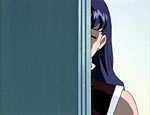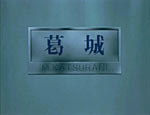FGC:Episode 02 Cut 106: Difference between revisions
The wayneiac (talk | contribs) No edit summary |
No edit summary |
||
| Line 13: | Line 13: | ||
|cutnumbertext=[[FGC:Episode 02 Cut 106|106]] | |cutnumbertext=[[FGC:Episode 02 Cut 106|106]] | ||
|script= | |script= | ||
{{FGC:Script Text|type=description | {{FGC:Script Text|type=description | ||
|text=Misato smiles. | |text=Misato smiles. | ||
}} | }} | ||
{{FGC:Script Text|type=dialogue|speaker=Misato | {{FGC:Script Text|type=dialogue|speaker=Misato | ||
|text= | |text=Welcome home.}} | ||
}} | |||
{{FGC:Script Text|type=description | {{FGC:Script Text|type=description | ||
|text=The door closes. Misato's doorplate. }} | |text=The door closes. Misato's doorplate. }} | ||
|comments= | |comments= | ||
{{FGC:Comment|name=thewayneiac | {{FGC:Comment|name=thewayneiac | ||
|comment=(105 | |comment=([[FGC:Episode 02 Scene 05#cut_02_105|105]]~[[FGC:Episode 02 Scene 05#cut_02_106|106]]) This is a rather important exchange of dialog (which will be repeated again), the traditional thing to say when arriving home. | ||
}} | }} | ||
{{FGC:Comment|name=Reichu | {{FGC:Comment|name=Reichu | ||
|comment=From Wada-kun's notes in the LTP: | |comment=From Wada-kun's notes in the LTP:{{br}} | ||
{{FGC:External|text= | |||
Someone comes home and says "TADAIMA". In answer to "TADAIMA", the person at home says "OKAERI(NASAI)". But when someone visits other's houses, the visitor says "OJAMASHIMASU". These greetings are very important in the context related to "home".}} | |||
}} | }} | ||
{{FGC:Comment|name=Quiddity | {{FGC:Comment|name=Quiddity | ||
|comment=This may also be one of NGE's many references to Gainax's Top o Nerae! Gunbuster OVA. "Welcome Home" is the message that our heroes receive when they return to Earth after the final battle.}} | |comment=This may also be one of NGE's many references to Gainax's Top o Nerae! ''Gunbuster'' OVA. "Welcome Home" is the message that our heroes receive when they return to Earth after the final battle.}} | ||
{{FGC:Comment|name=Reichu | {{FGC:Comment|name=Reichu | ||
|comment=This interchange is such an integral part of Japanese culture that you'll see it plenty of times in anime. Sometimes the order is even reversed: When one forgets to announce "Tadaima", it can be prompted by someone else's "Okaeri nasai". (The final two lines of the Hare + Guu TV series are one such example.)}} | |comment=This interchange is such an integral part of Japanese culture that you'll see it plenty of times in anime. Sometimes the order is even reversed: When one forgets to announce "Tadaima", it can be prompted by someone else's "Okaeri nasai". (The final two lines of the ''Hare + Guu'' TV series are one such example.)}} | ||
}} | }} | ||
Latest revision as of 20:40, 16 January 2010
| Screenshots | Cut # | Description/Dialogue | Commentary | ||
|---|---|---|---|---|---|
| 106 |
|
|



